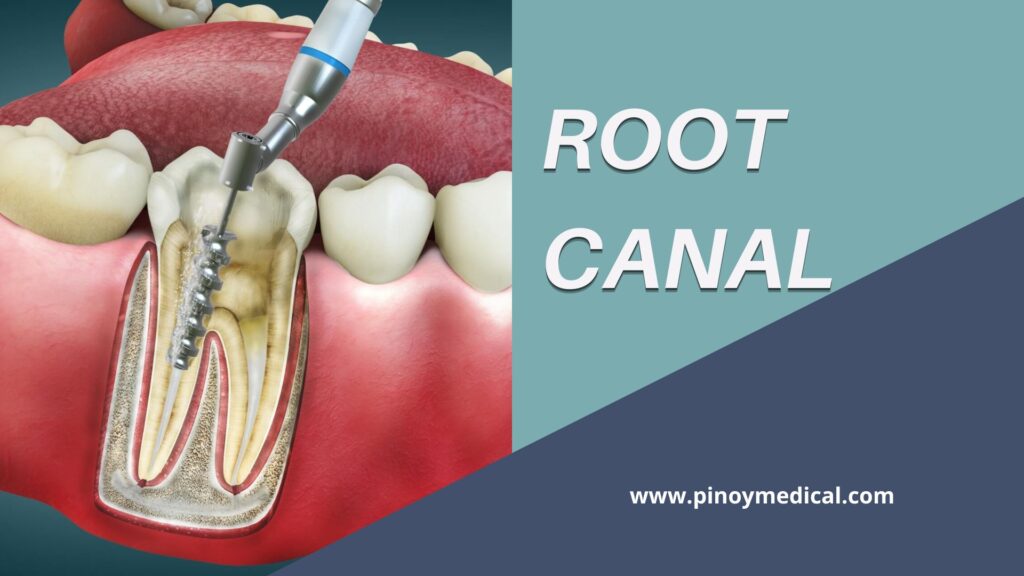A root canal is a dental operation that removes damaged or inflamed pulp located within the tooth to cure severe toothaches. With this method, the native tooth is preserved, pain is eliminated, and future infection is avoided. To preserve oral health and prevent extractions, root canal therapy provides a painless way to guarantee the durability and durability of teeth.
Root Canal Price
A root canal usually costs between ₱5,000 and ₱9,000 per session, following the patient’s health and the intricacy of the procedure itself. Packages are available at certain clinics for as little as ₱4,500, and with reductions, expenses can drop to ₱900. Check with local dental offices and hospitals for precise prices, as they can differ greatly.

Popular Hospitals and Clinics that Provide Root Canal
The price of root canal therapy varies greatly throughout hospitals because of things like hospital reputation and geographic location. Costs might also be affected by extra services and the skill of the physician. The list of renowned clinics that provide root canal therapy is as follows.
| Hospitals/Lab | Location | Contact | |
| UERM Memorial Medical Center Incorporated | UERM Memorial Medical Center, Aurora Blvd, Quezon City, 1100 Metro Manila | 0287150861 | [email protected]. |
| Beverly Hills Medical Group | 57 Paseo de Roxas Street 1226 Makati | (02) 82554802 | [email protected] |
| Sacred Heart Dental Center (Manila Dental Clinic) | 129 Asuncion, Morning Breeze Subdivision, Caloocan, 1400 Kalakhang Maynila | 0283305750 | [email protected] |
| World Citi Medical Center | 960 Aurora Boulevard 1109 Quezon City | (02) 89138380 | [email protected] |
| Asian Hospital and Medical Center | 2205 Civic Dr, Alabang, Muntinlupa, 1780 Metro Manila | 0287719000 | [email protected] |
| East Avenue Medical Center | East Avenue, Diliman, Quezon City Philippines 1100 | (632) 89280611 | [email protected] |
| Gerochi Dental & Implant Center | 4th Level Montivar Building 1209 Makati | 09088731500 | [email protected] |
| Precision Smile Dental Clinic | 857 Galicia St, Sampaloc, Manila, 1008 Metro Manila | 09088654180 | [email protected] |
| Affinity Dental Clinics | 2nd Floor, Plaza One Hundred, V.A. Rufino St., Legaspi Village, Makati City 1229 Makati | 091 5846852 | [email protected] |
Video about Root Canal
FAQs
What signs suggest that a root canal may be required?
Severe toothache, persistent hypersensitivity to heat or cold, tooth discoloration, irritation and swelling in the gums encircling the affected area, and recurrent gum disease are all signs that a root canal is necessary.
Is getting a root canal painful?
The actual process of a root canal is not as painful as some may think. Anesthesia and contemporary methods guarantee that patients feel as little discomfort as possible during the process. The majority of patients state that following the treatment, their pre-procedural pain is greatly reduced.
What is the duration of a root canal method?
The number of canals in the tooth and the degree of difficulty of the case determine how long a root canal will take. It usually takes sixty to ninety minutes. It can take several visits to finish treatment in some circumstances.
What may I anticipate following a root canal?
For a few days following a root canal, it’s common to feel a little sensitive or uncomfortable in the region that was treated. Painkillers available over the counter can help with this. It’s critical to practice proper dental hygiene and abide by any particular aftercare guidelines your dentist may supply.
After having a root canal, what should I eat?
It’s recommended to consume soft meals like soups, and fruit smoothies after having a root canal. Steer clear of anything tough, gritty, or sticky that may damage the area being treated or harm the interim filling.
After receiving a root canal, how long does a tooth last?
A tooth that has had root canal therapy can endure for years if given the right care. The durability of the tooth depends on maintaining proper oral hygiene, refraining from applying undue force to the treated tooth and scheduling routine dental checkups.


